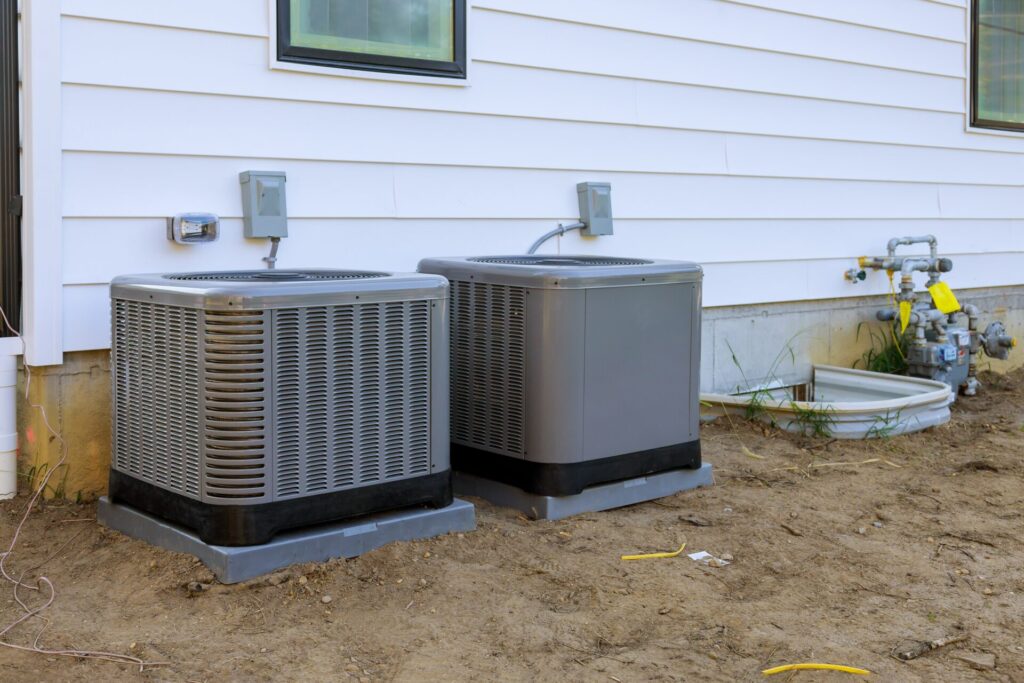As homeowners in Flagler Beach seek more energy-efficient and versatile solutions to meet their heating and cooling requirements, heat pump systems have increasingly gained popularity due to their energy-saving attributes and year-round functionality. These advanced systems use the transfer of heat from one area to another to provide both heating and cooling options, efficiently maintaining comfortable indoor temperatures irrespective of the season and weather conditions. We will explore the numerous benefits of heat pump systems for efficient heating and cooling in Flagler Beach homes, highlighting factors such as lower energy consumption, better indoor air quality, and the convenience of having a single system to manage both heating and cooling needs.
Different Types of Heat Pump Systems for Your Home
Selecting the ideal heat pump system for your Flagler Beach home involves careful consideration of various factors, including climate, home layout, and energy efficiency requirements. Here, we discuss three common types of heat pump systems available on the market to assist you in determining the best-suited option:
- Air-Source Heat Pumps: The most common type of heat pump, air-source systems, extract heat from the outdoor air to heat your home during the winter and reverse the process for cooling in the summer. While well-suited for moderate climates, advances in technology have made these systems increasingly capable of operating efficiently even in colder regions.
- Ground-Source (Geothermal) Heat Pumps: Leveraging the stable ground temperatures beneath the Earth’s surface, these systems are known for their high levels of energy efficiency. Ground-source heat pumps can be more expensive upfront to install but offer longer service life and superior energy savings in the long run.
- Mini-Split (Ductless) Heat Pumps: Ideal for homes without existing ductwork or those looking to heat and cool individual rooms or zones, mini-split systems comprise an outdoor compressor and multiple indoor air handlers that can be controlled independently. These systems offer the most flexibility and precision in temperature control.
Expert Tips on Heat Pump Installation
A successful heat pump installation requires meticulous planning, taking into account various site-specific factors to ensure optimal energy efficiency and long-term system performance:
- Professional Assessment: Engage an experienced HVAC professional to assess your home’s energy needs, insulation, and layout, and to recommend the most suitable heat pump system and its size.
- Correct Sizing: Over or under sizing a heat pump can lead to decreased efficiency, inadequate heating/cooling, and a shortened system lifespan. Seek professional guidance to ensure correct sizing that meets your comfort requirements and maximizes energy savings.
- Ideal Placement: Work with your HVAC technician to find the best location for installing the heat pump and its components – both indoor and outdoor – ensuring unobstructed airflow, ease of maintenance access, and minimal noise production.
Routine Heat Pump Maintenance for Optimal Performance
Similar to other HVAC systems, heat pumps require regular maintenance to function efficiently and prolong their service life. Below, we outline key maintenance tasks that should be carried out periodically:
- Air Filter Cleaning/Replacement: Clean or replace air filters every 1-2 months during peak usage seasons, as clogged filters restrict airflow and cause undue stress on the heat pump compressor.
- Outdoor Unit Maintenance: Keep the area around the outdoor heat pump unit clear of debris, vegetation, and snow, ensuring proper airflow and heat exchange.
- Coil Cleaning: Clean indoor and outdoor coils annually to prevent the accumulation of dirt, which can limit the system’s heat-transfer capability and reduce efficiency.
- Schedule a Professional Tune-Up: At least once a year, schedule a professional technician to inspect, clean, and service your heat pump system. This may include checking refrigerant levels, duct sealing, and thermostat calibration.
Heat Pump Repair – Signs to Watch For
Regular maintenance is crucial to avoid costly heat pump repairs, but it is also important to recognize signs that may indicate the need for professional servicing:
- Unusual Noises: Rattling, buzzing, or grinding sounds from the heat pump could signal loose parts, malfunctioning fan motors, or compressor issues.
- Inadequate Heating/Cooling: If your heat pump fails to maintain desired temperatures, it may be due to refrigerant leaks, duct issues, or thermostat malfunctions.
- Unexplained Energy Bill Spike: A sudden increase in energy costs may indicate decreased heat pump efficiency due to factors such as refrigerant leaks or a faulty compressor.
- Frequent Cycling: When a heat pump consistently turns on and off without reaching desired temperatures, it may be due to issues like low refrigerant levels, a malfunctioning thermostat, or improper system sizing.
Conclusion: Explore the Benefits of Heat Pump Systems for Year-Round Comfort
Heat pump systems offer Flagler Beach homeowners a versatile, energy-efficient solution for all their heating and cooling needs. By understanding the different types of heat pump systems and engaging in proper installation, maintenance, and timely repairs, you can experience year-round comfort, improved indoor air quality, and reduced energy costs. If you’re ready to upgrade your home’s heating and cooling system to a heat pump, trust our professionals at Accu-Temp Heating & Air Conditioning to guide you through the process and ensure optimal performance and satisfaction. Contact us now to learn more about our heat pump services in Palm Coast, FL.






